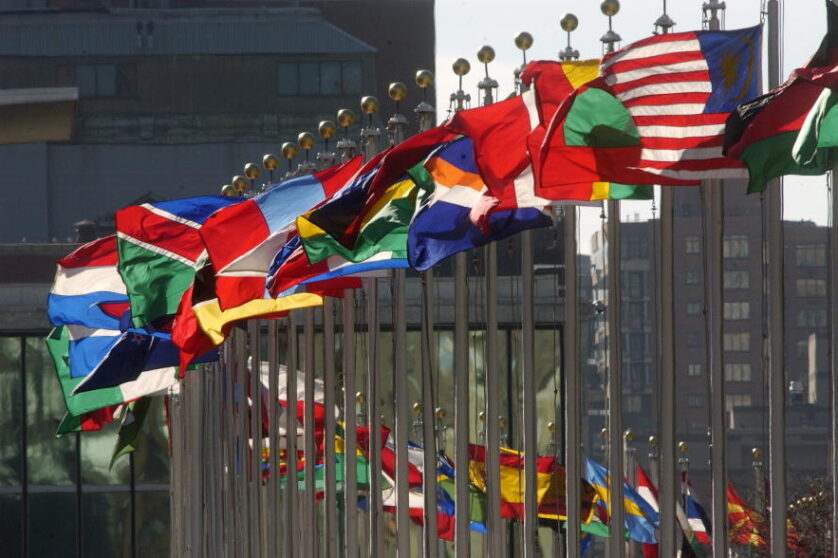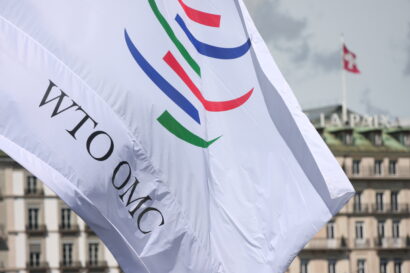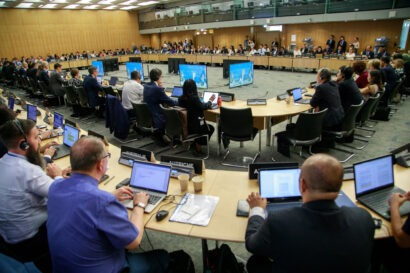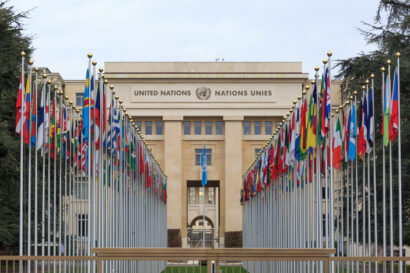Last week, the United Nations General Assembly passed a historic resolution commencing work on a UN tax convention. For decades, the majority of UN members from the global South have called for it to establish an intergovernmental tax body supported by civil society activists. Only now have they taken that call over the line so tangibly.
This UN process comes at a ‘critical juncture’ for global tax governance, during which large departures from the usual parameters of reform can be contemplated.
The UN’s current role in global tax governance is limited to an expert committee of 25 people, nominated by states yet participating in their personal capacity. While in principle this committee’s role is to give “special focus to least developed countries and others in special situations, including small island states and landlocked countries”, its ability to act as a counterweight to the OECD is restricted by the lack of governmental endorsement for its outputs, a far smaller secretariat, and the OECD’s recent efforts to open the door for lower-income countries (LICs) to participate in its standard-setting bodies on an ‘equal footing’.
These have led to an expectation of significant OECD reforms which will be in LIC’s interests. Rather than meeting these expectations, they have instead highlighted underlying imbalances of power and fundamental disagreements. Although consensus could indeed be achieved among the 100+ countries in the G20/OECD Inclusive Framework, this would only be on the basis of mind-boggling complexity, few significant concessions to the global South and some serious arm-twisting.
The UN Convention must be based on lessons learnt
To learn lessons from this experience, two important sets of questions must be confronted.
First, what are the international tax problems that require a multilateral solution and for which a UN convention would add value? For example, tackling tax avoidance does not necessarily require multilateral cooperation, since, as the BEPS Project illustrates, a lot can be done through domestic law.
There are three dimensions to addressing this question:
- breadth – how widely a new instrument is adopted
- depth – how ambitious is the change it proposes
- bindingness – is the commitment enforceable, and if so, how.
To some extent, the proponents of a new instrument must trade these three ambitions off against each other, especially if it becomes harder for powerful countries to pressure weaker ones into agreement. The African Group’s decision to push through a resolution by majority, rather than watering it down to achieve consensus, reflects a desire to prioritise depth and bindingness over breadth.
A second set of questions concerns the pace and sequencing of international tax standard-setting.
On the touchstone issue of taxation of the digital economy, OECD-led multilateralism has often been set in contrast to unilateral measures adopted by countries outside of international consensus. Yet multilateral, regional, bilateral and unilateral innovations are in a dynamic interaction. Standards can flow from the top down, as countries first work together to define problems and develop solutions through international institutions, then adopt them as law. They can also flow bottom up, as international institutions standardise practices that first become widespread.
A good example of this contrast is found in two recent additions to the UN model convention:
- article 12A on technical services which standardises a practice already widespread in LICs’ treaties
- article 12B on automated digital services which proposes a novel approach to taxing the digital economy.
What should be the goals of a Framework Convention?
A UN Convention can respond to three key gaps in the current landscape.
1. Moving multilateral tax negotiations onto a more explicitly political footing.
Our research has shown that technocratic negotiators from LICs are disadvantaged by the absence of political backing, especially where their preferences run against those of powerful states. Most of the current negotiating spaces at the UN and OECD are either explicitly or implicitly technical. For the UN’s expert committee, this is by design; in the OECD bodies, regardless of whether or not negotiators speak on behalf of their member states, they are technocrats operating at some distance from their political principals. Where their deliberations spill over into more politicised settings such as the G20 and G7, these are far less inclusive.
Shifting to an intergovernmental body will involve other parts of government that do not habitually work on tax matters: this presents an opportunity for LICs to move their negotiating capabilities up a gear, but alongside this comes a risk that officials with technical experience and knowledge may be side-lined.
2. Opportunity for fresh thinking about the structure of multilateral cooperation
The aim should be global coordination, but within a framework that is robust enough to meet the needs of developing countries, and accommodate differences of approach.
There has never been a one-size-fits all consensus in international tax, as shown by our research on the prevalence of UN treaty norms in the global South, and the current UN tax committee is increasingly carving out a different approach to the OECD. The latter aspires to position itself at the centre of a global consensus, but one that is deep, broadly accepted and binding may not, in reality, be possible. This is especially the case given the appetite for more radical reform in some quarters of the global South.
In response to this dynamic, the new resolution proposes a Framework Convention, a type of instrument comprising a lowest common denominator base with widely acceptable commitments, on top which can be layered more ambitious protocols into which countries opt case-by-case. The most famous is on climate change.
A clear message from our research was that some lower-income countries, as well as OECD members, have invested in the existing OECD bodies, and a UN convention would need to build on and complement them, rather than duplicating them outright – as the UN Convention on Corruption, for example, does. The goal should be to enable different groups of countries with common cause to adopt standards that meet their needs and maximise compatibility with others.
3. Fertile negotiating environment overcoming some of the challenges LICs face in existing tax bodies
To begin with, LICs are likely to be empowered in a UN system that is used to accommodating bloc positions. These could lead to optional protocols or shape the universal content of the framework convention itself through aligned voting. As noted above, the involvement of diplomatic staff in UN missions is likely to redress some of the deficits in experience and capacity that countries face in OECD bodies. This is already demonstrated by the negotiations on the Resolution itself. Procedural transparency will make it clearer how all countries can influence the Convention’s agenda, and give it the ‘throughput’ legitimacy that neither the current UN nor OECD bodies enjoy.
Still, we should not underestimate the capacity building efforts that will be needed if lower-income countries are to take advantage of institutions and procedures that, in principle, give them greater influence. They have not fully realised their potential to shape outcomes in existing bodies for this reason.
In sum, the future of international tax cooperation depends not just on institutional developments at the UN, but also on how well countries can capitalise on them.
With thanks to Mbakiso Magwape and Frederik Heitmuller for their input on this blog.



